The viral coronavirus outbreak has left millions of people around the world in financial limbo, without income or with insufficient earnings as their bills pile up.
Many businesses have started scaling back their workforce as the prospect of a quick recovery from the pandemic fades, with airline companies making some of the biggest job cuts.
According to the International Air Transport Association, global airline passenger revenues are forecast to tumble by as much as 55% in 2020, or some $314 billion.
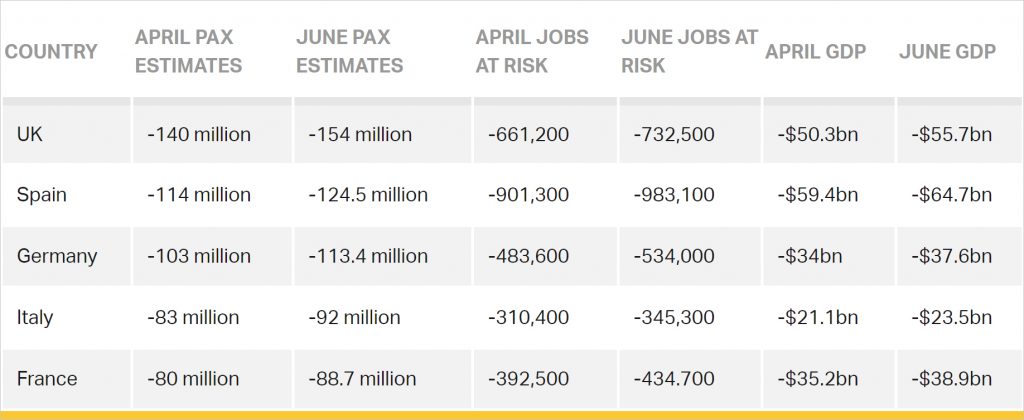
In addition to airlines, the health crisis is having knock-on effects on airports and planemakers. Manufacturing is also among the industries that have been most negatively affected by the evolving COVID-19 situation.
Major companies who have announced plans for downsizing their personnel and operations due to COVID-19 include Uber, Hilton, Marriott International, Macy’s, HSBC, AT&T, Chevron, Boeing, Airbus, IBM, Airbnb, Virgin Atlantic, United Airlines, Lyft, TripAdvisor, Hertz, Walt Disney Co., Renault, British Petroleum, Tesla, JCPenney, Sotheby’s, Nissan Motor Co., EasyJet, Air Canada, Norwegian Airlines, Ryanair, Lufthansa, Air France-KLM, British Airways, and Scandinavian Airlines.
Read more: Shadow of Coronavirus Looms Large Over Global, EU Economies
All this reduction in hours or pay, temporary furloughs, and permanent layoffs mean that many countries are teetering on the precipice of mass unemployment.
Job Cuts in Europe
In Europe, job losses are building up by the hundreds of thousands, though solid figures are not yet available.
Fortune recently quoted European Central Bank President Christine Lagarde as telling a webinar that the pandemic will change parts of the economy permanently.
Just like their counterparts in other countries, European airlines have not been left unscathed.
Research recently published by the International Air Transport Association warned that airlines in Europe are set to lose $21.5 billion this year, with passenger demand plunging by over half because of continued global travel restrictions.
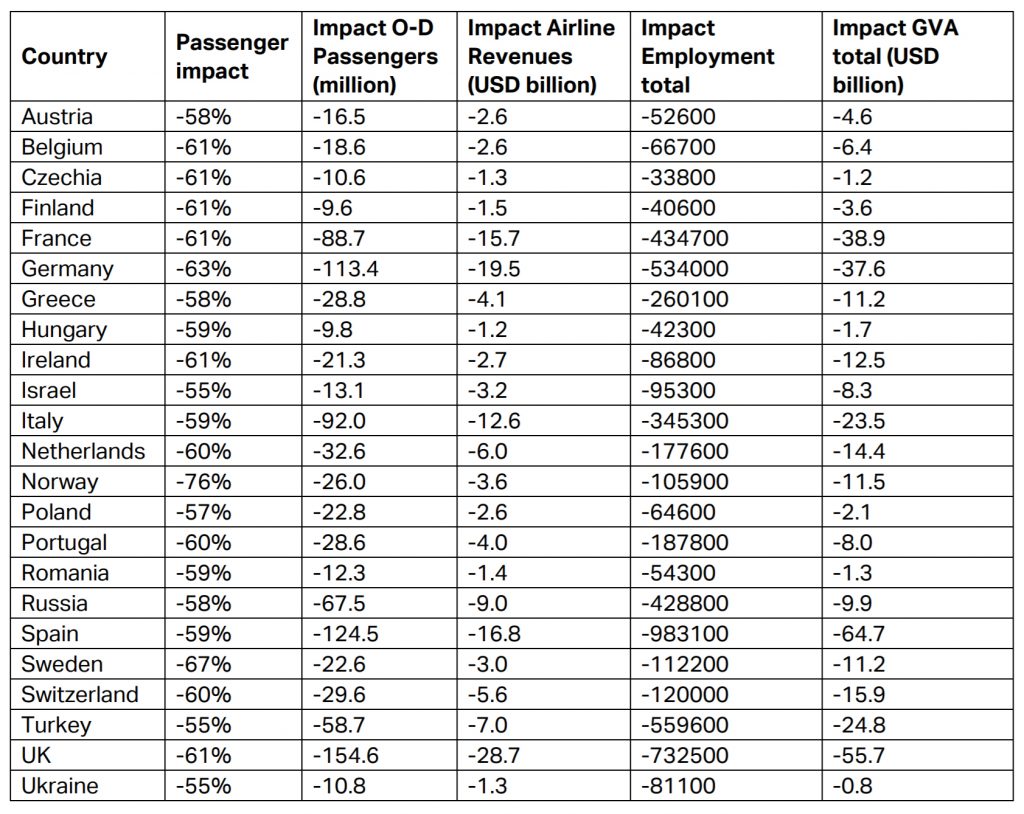
“This puts at risk between 6-7 million jobs supported by aviation in Europe alone. Accelerated recovery of air transport in Europe is vital if the worst of these impacts is to be avoided,” the global aviation body said.
According to IATA, accelerated recovery of air transport in Europe can be achieved through government action in two priority areas: A coordinated restart of air travel and continued financial and regulatory support.
Economists cited by VOA say the full economic impact of the coronavirus pandemic has yet to be felt across Europe due to government furlough schemes for workers and massive state subsidies for their companies.
“Across Europe, more than 40 million jobs have been kept alive by furlough schemes with governments paying companies to pay locked-down workers. In some countries, governments have been paying as much as 80% of average wages. The big unknown is what will happen when those subsidies are unwound,” reads a recent VOA report.
Unemployment Rate
Data from Eurostat, the EU’s stats agency, shows that the unemployment rate in the bloc rose to 6.7% in June 2020 from a 12-year low of 6.4% in March. It’s the biggest rise in several years.
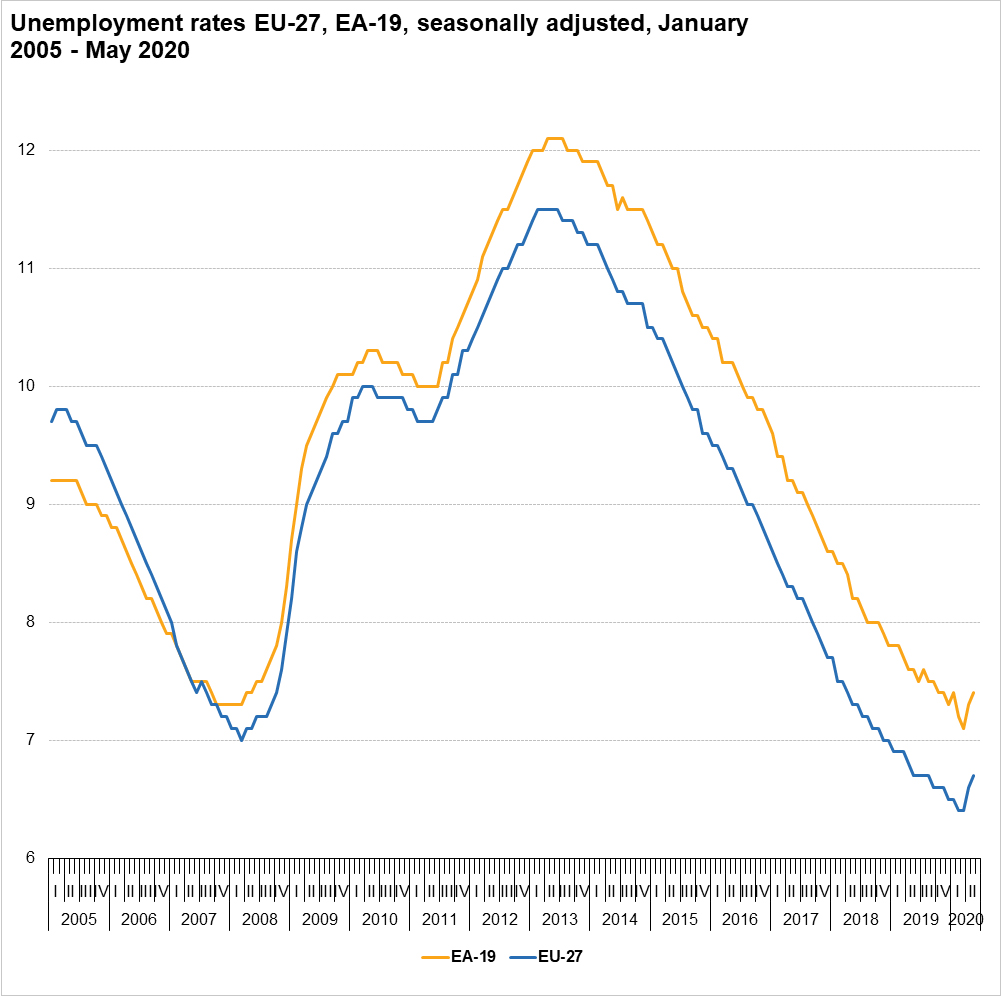
In a recent report, McKinsey warned that the EU unemployment rate could rise to more than 11% and remain elevated for a long time if the disease is not quickly contained.
It says about 60 million jobs across the European Union and the United Kingdom are at risk of a reduction in hours or pay, temporary furloughs, or permanent layoffs.
“Fifty percent of all jobs at risk in Europe come from customer service and sales (25 percent), food services (13 percent), and building occupations (12 percent). Production work (9 percent), office support (8 percent), and community services (8 percent) make up another 25 percent,” the report added.
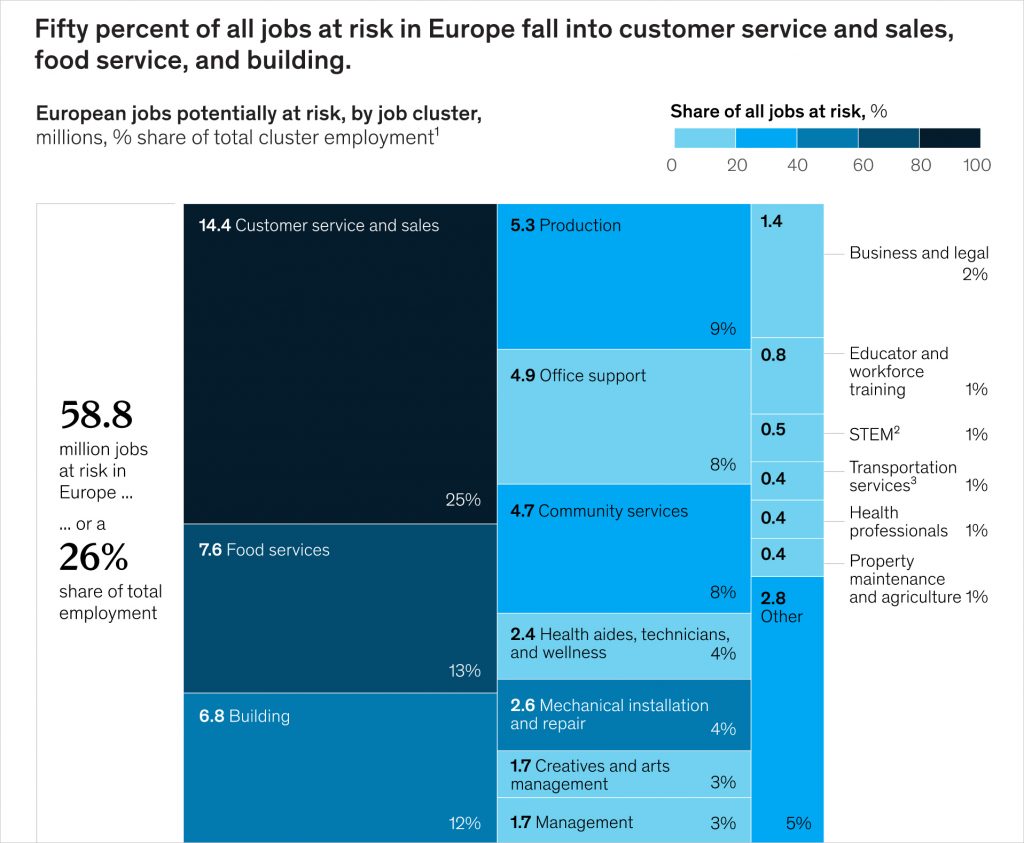
According to the consulting firm, less affected are workers in the health, science, technology, engineering, mathematics, business, and legal professions as well as educators and trainers.
“Employment in small and medium-size enterprises (SMEs), or those with fewer than 250 employees, which accounted for more than €4.3 trillion in value-added in the EU-27 plus the United Kingdom in 2019, is particularly at risk. At least two of three jobs at risk are in an SME, and more than 30 percent of all jobs at risk are found within microenterprises consisting of nine employees or fewer,” it wrote.
Solutions
It is true that policymakers and business leaders across the continent have taken someMcKinsey argues that businesses and governments need to act fast to save jobs. It says companies should separate work shifts, cut costs, consider innovation in their business model, and enable remote working where possible while governments should provide tax relief, loan guarantees, and guarantee to pay for workers.
Some of these measures are already being implemented across Europe. According to the European Trade Union Confederation, about 18 EU countries as well as Norway and the UK have already introduced measures to protect jobs.
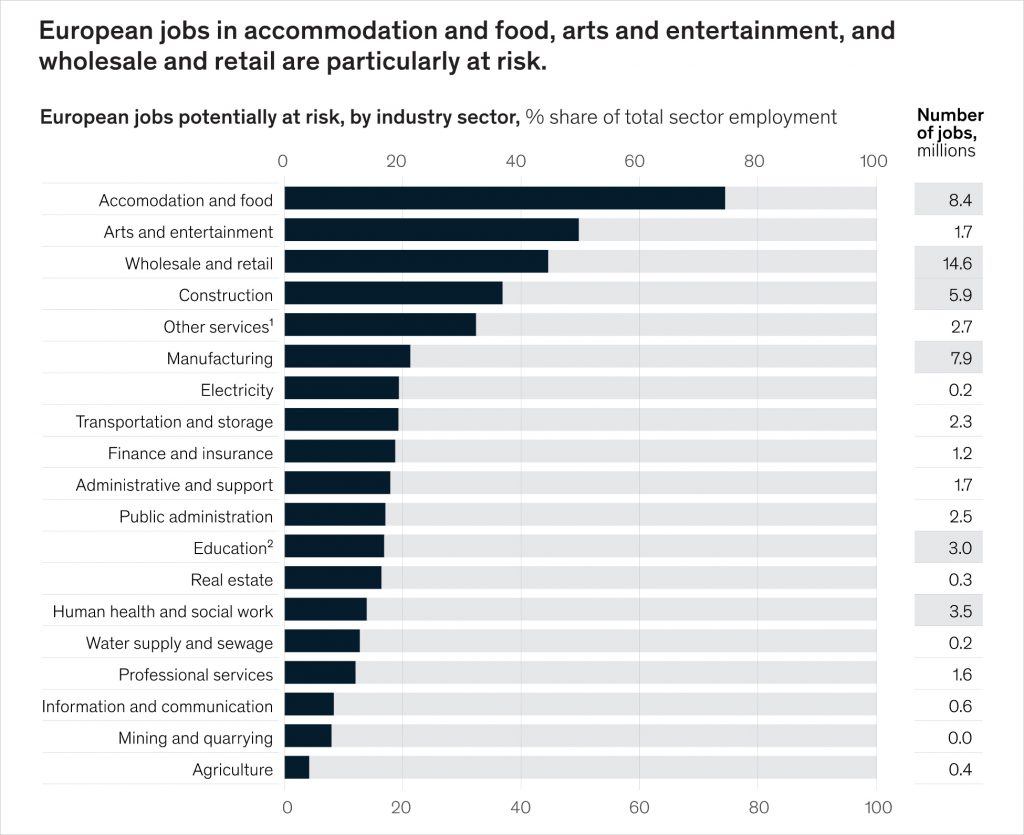
European governments have unveiled trillions of euros in credit for companies and aid for families and small businesses, including cash handouts to weather the downturn.
Soon after the virus overwhelmed Europe, the EU commission—as AP reports—acted to make available 37 billion euros from the EU budget and the European Central Bank said it will buy as much as 750 billion euros in financial assets to calm markets.
Read more: Europe’s Economy in Tatters as Coronavirus Lockdowns Tighten
It is true that policymakers and business leaders across the continent have taken some
As McKinsey says, “Paying close attention to the industries, occupations, and demographics most at risk can help Europe’s decision-makers shape responses that are targeted and rapid.”







